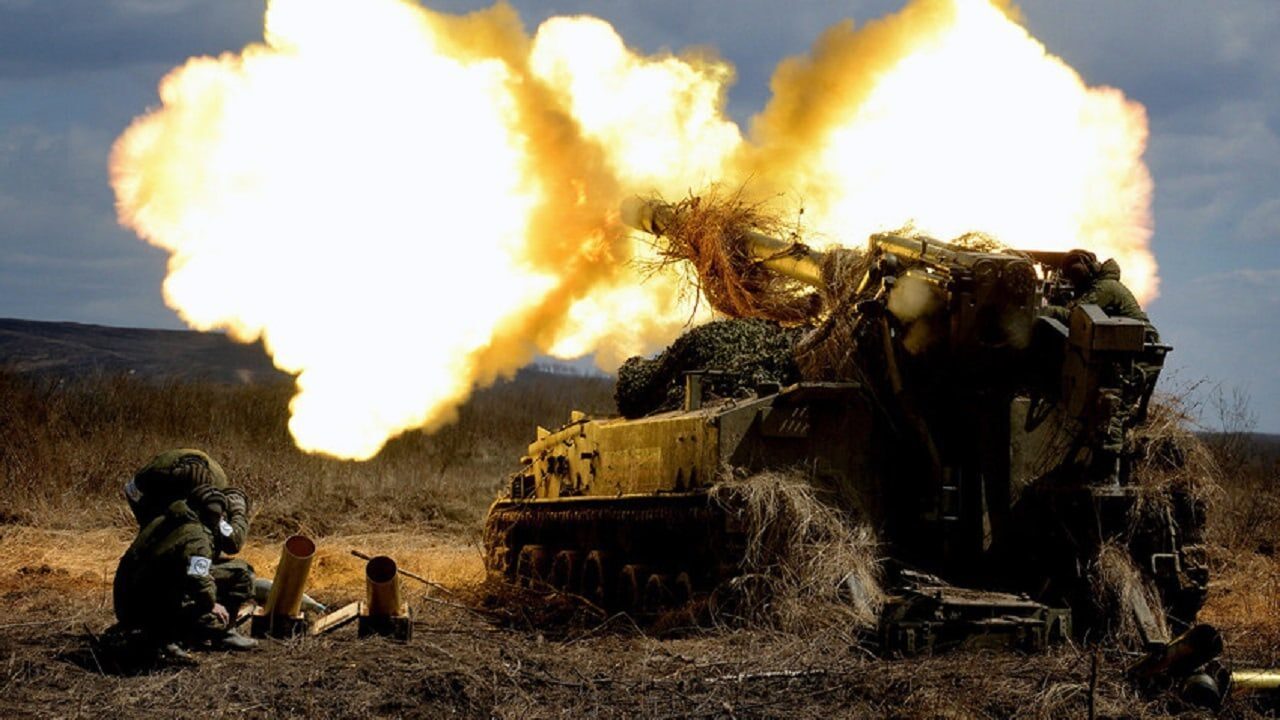How likely is a protracted war in Ukraine? Just as talk of a protracted Russo-Ukrainian war was increasingly making the rounds among analysts, Russian dictator Vladimir Putin—being true to form in his inability to resist self-destruction—demonstrated yet again why such an outcome is both unlikely and undesirable.
On Monday, June 27, a Russian missile struck and destroyed a shopping center in the city of Kremenchug, south of Kyiv. According to Ukrainian President Volodymyr Zelensky, over 1,000 civilians were in the center at the time of the blast: “It’s impossible even to imagine the number of victims.”
If one needed more proof of Putin’s genocidal intentions and behavior in Ukraine, this barbaric act surely was it.
But if one also needed proof of the extreme unlikelihood of a protracted war, this was also it.
Putin is so predictable. Whenever the West appears to tire of or despair about Ukraine, Russia’s leading fascist can always be counted on to engage in an act of such wanton barbarism as to make continued indifference impossible. If it weren’t for the massacres in Irpen and Bucha, two towns north of Kyiv that were mercilessly raped by Russian troops, the West might not have committed to supporting Ukraine with the vigor that it has. If it weren’t for Putin’s strategically idiotic decision to invade Ukraine, the West would probably have countenanced its progressive transformation into a Russian vassal state.
Now, after the Kremenchug massacre, no self-respecting country that belongs to the Ramstein group devoted to supporting Ukraine and no member of the G-7 countries that just stated “We will continue to provide financial, humanitarian, military and diplomatic support and stand with Ukraine for as long as it takes” will be able to avoid arming Ukraine to the degree it needs in order to prevail.
Putin makes such decisions easy, as the choice before Ukraine’s friends is no longer that between protracted war and acceptance of the status quo, but that between the reign of barbarism or victory. States are never quite as committed to human decency as they insist, but there are times—such as this—when there is no alternative to converting outrage into action.
The reason that increased deliveries of heavy weaponry, ammunition, supplies, and finances to Ukraine matters is simple. At present, Ukraine isn’t losing, and Russia isn’t winning. Indeed, if the status quo were to continue, Russia’s victory or defeat would be hard to envision. On the one hand, Russia is running out of soldiers, tanks, and missiles and is barely able to make any kind of progress in the Donbas, where its artillery and manpower greatly outnumber that of the Ukrainians.
Such a Russia cannot win. On the other hand, Russia is too large to be defeated with Ukraine’s current weaponry, especially as Putin is utterly indifferent to the number of casualties his troops sustain in their ill-planned frontal attacks against Ukrainian positions in the east and south. Such a Russia cannot lose.
Other things being equal, a protracted war would be likely with Russia and Ukraine as they are.
But, thanks to the prodding of the United States and the United Kingdom, and thanks to the Kremenchug massacre, other things are not and will not be equal.
The heavy weapons the West has promised to deliver will now have to be delivered, and the timelines will probably be sped up.
These weapons—and especially U.S. lend-lease weaponry—should tilt the balance in favor of the Ukrainians. After all, Ukraine isn’t losing, but neither can it defeat the Russians with its current capabilities. Once the weapons arrive in significant numbers, it’s perfectly possible for Ukraine to push back the Russians from the territories seized after the start of the war on February 24.
To be sure, the planned Ukrainian counter-offensive, which is slated to start sometime in the late summer, will be no cakewalk. Casualties on both sides will be high. More civilians will die as part of Putin’s genocide. But the Ukrainians are likely to prevail in general and especially where it counts most.
And it counts most in the southern provinces of Kherson and Zaporizhzhya, which sit atop the Crimea and form an integral part of the coveted Russian land bridge to the occupied peninsula. Even with very minimal numbers of Western weapons, the Ukrainian armed forces have currently managed to overcome two lines of defense around Kherson and are now within sight of the city. If they capture the city before the general counter-offensive, they will be able to cut off water to the Crimea, destroy the land bridge, and be within range of striking the Black Sea fleet parked in Sevastopol. Losing Kherson would be a major strategic loss for Russia; gaining Luhansk or even Donetsk provinces would only tickle Putin’s need for self-affirmation as the great in-gatherer of lands.
Although most Western attention is focused on the Donbas, where the chances of a protracted conflict seem high, events in the south actually suggest the opposite—that Ukraine is poised to seize the strategic initiative if and when it acquires the weapons that will give it the upper hand.
If that happens, Putin will have only his own genocidal barbarism to blame for his ignominious defeat.
Dr. Alexander Motyl, now a 1945 Contributing Editor, is a professor of political science at Rutgers-Newark. A specialist on Ukraine, Russia, and the USSR, and on nationalism, revolutions, empires, and theory, he is the author of 10 books of nonfiction, including Pidsumky imperii (2009); Puti imperii (2004); Imperial Ends: The Decay, Collapse, and Revival of Empires (2001); Revolutions, Nations, Empires: Conceptual Limits and Theoretical Possibilities (1999); Dilemmas of Independence: Ukraine after Totalitarianism (1993); and The Turn to the Right: The Ideological Origins and Development of Ukrainian Nationalism, 1919–1929 (1980); the editor of 15 volumes, including The Encyclopedia of Nationalism (2000) and The Holodomor Reader (2012); and a contributor of dozens of articles to academic and policy journals, newspaper op-ed pages, and magazines. He also has a weekly blog, “Ukraine’s Orange Blues.”

